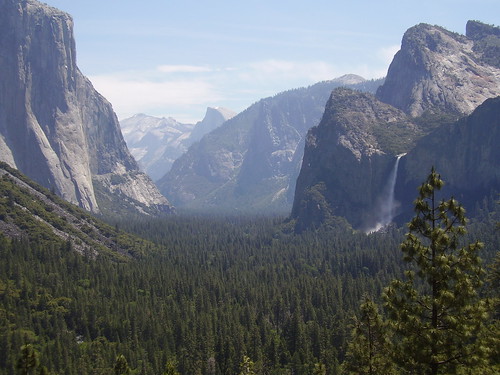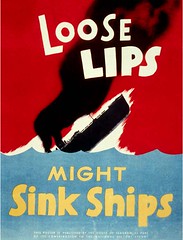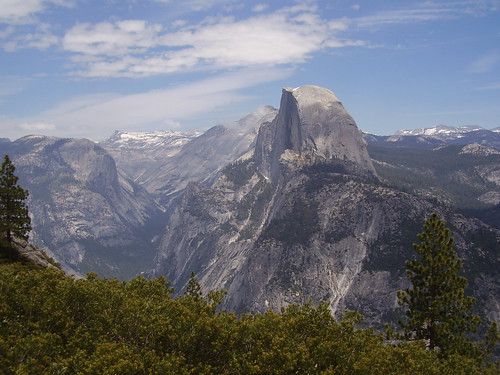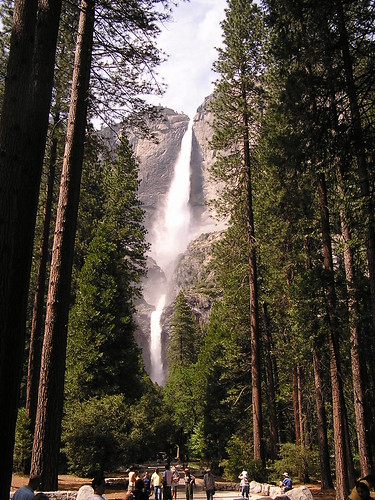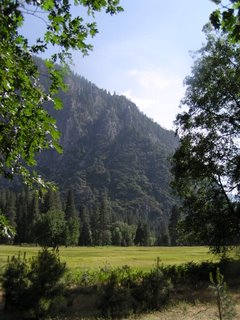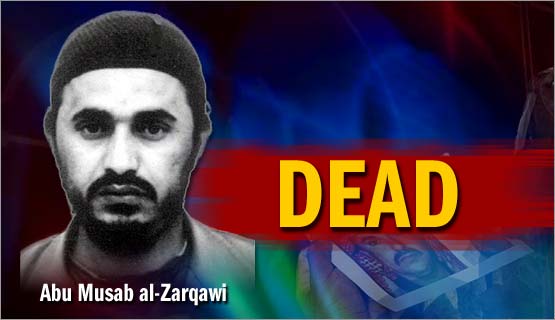On the front page of the
23 June edition, the New York Times broke the story concerning the US government's monitoring of international bank transactions in order to interdict terrorist funding. Other papers reported the story too, but the NYT broke it. Many, including
the President, think the Times went too far and critically jeopardized national security by publishing this story. I agree. The storm of crticism (rounded up admirably at
Gateway Pundit and Pajamas Media) provoked an angry and supercilious response from NYT Executive Editor
Bill Keller:
Some of the incoming mail quotes the angry words of conservative bloggers and TV or radio pundits who say that drawing attention to the government's anti-terror measures is unpatriotic and dangerous. (I could ask, if that's the case, why they are drawing so much attention to the story themselves by yelling about it on the airwaves and the Internet.) Some comes from readers who have considered the story in question and wonder whether publishing such material is wise. And some comes from readers who are grateful for the information and think it is valuable to have a public debate about the lengths to which our government has gone in combatting the threat of terror.
It's an unusual and powerful thing, this freedom that our founders gave to the press. Who are the editors of The New York Times (or the Wall Street Journal, Los Angeles Times, Washington Post and other publications that also ran the banking story) to disregard the wishes of the President and his appointees? And yet the people who invented this country saw an aggressive, independent press as a protective measure against the abuse of power in a democracy, and an essential ingredient for self-government. They rejected the idea that it is wise, or patriotic, to always take the President at his word, or to surrender to the government important decisions about what to publish.
The power that has been given us is not something to be taken lightly. The responsibility of it weighs most heavily on us when an issue involves national security, and especially national security in times of war.
To which I say: "who elected you, Mr. Keller?" Who is
he accountable to? Perhaps to his ever-declining readership, but does that give him the right to endanger American lives and the US war effort?
Prof. Reynolds the Instapundit has this take on that middle paragraph of Keller's:
A deeper error is Keller's characterization of freedom of the press as an institutional privilege, an error that is a manifestation of the hubris that has marked the NYT of late. Keller writes: "It's an unusual and powerful thing, this freedom that our founders gave to the press. . . . The power that has been given us is not something to be taken lightly."
The founders gave freedom of the press to the people, they didn't give freedom to the press. Keller positions himself as some sort of Constitutional High Priest, when in fact the "freedom of the press" the Framers described was also called "freedom in the use of the press." It's the freedom to publish, a freedom that belongs to everyone in equal portions, not a special privilege for the media industry.
Hugh Hewitt also posted a lengthy and excellent
fisking of Keller's letter.
Austin Bay and many others (including most of the Right's talk radio hosts) have called for prosecuting the Times. But Bay puts it this way:
The Bush Administration should prosecute the leakers, but I don’t think the Administration has the spine for this.
I agree and the reason goes hand-in-hand with the Administration's immigration policy: it has no defining concept of citizenship or even nationhood. This is what motivates it (and the Senate) to want to pardon illegal aliens and to refuse to prosecute the compromise of vital classified data (what penalty did Sandy Berger really pay?). The Times' act may rise to outright treason: aiding and abetting the nation's enemies in times of war. There can be no treason, however, if there's nothing to commit treason against and if people aren't citizens, but are just members of factious "constituencies." I hope the President doesn't view the US this way, but it's clear that the NYT does.
A number of today's heroes over fighting the war have responded.
Powerline received one of the most eloquent responses from Lt Tom Cotton:
Dear Messrs. Keller, Lichtblau & Risen:
Congratulations on disclosing our government's highly classified anti-terrorist-financing program (June 23). I apologize for not writing sooner. But I am a lieutenant in the United States Army and I spent the last four days patrolling one of the more dangerous areas in Iraq. (Alas, operational security and common sense prevent me from even revealing this unclassified location in a private medium like email.)
Unfortunately, as I supervised my soldiers late one night, I heard a booming explosion several miles away. I learned a few hours later that a powerful roadside bomb killed one soldier and severely injured another from my 130-man company. I deeply hope that we can find and kill or capture the terrorists responsible for that bomb. But, of course, these terrorists do not spring from the soil like Plato's guardians. No, they require financing to obtain mortars and artillery shells, priming explosives, wiring and circuitry, not to mention for training and payments to locals willing to emplace bombs in exchange for a few months' salary. As your story states, the program was legal, briefed to Congress, supported in the government and financial industry, and very successful.
Not anymore. You may think you have done a public service, but you have gravely endangered the lives of my soldiers and all other soldiers and innocent Iraqis here. Next time I hear that familiar explosion -- or next time I feel it -- I will wonder whether we could have stopped that bomb had you not instructed terrorists how to evade our financial surveillance.
And, by the way, having graduated from Harvard Law and practiced with a federal appellate judge and two Washington law firms before becoming an infantry officer, I am well-versed in the espionage laws relevant to this story and others -- laws you have plainly violated. I hope that my colleagues at the Department of Justice match the courage of my soldiers here and prosecute you and your newspaper to the fullest extent of the law. By the time we return home, maybe you will be in your rightful place: not at the Pulitzer announcements, but behind bars.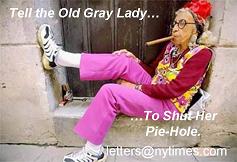
Very truly yours,
Tom Cotton
Baghdad, Iraq
That pretty much says it all.
Monk
Update 28 Jun 06: Iowahawk has found the first draft of Keller's letter in a NYC dumptster. The original version of the first paragraph I quoted above:
Some of the incoming mail quotes the spittle-flecked words of conservative bloggers and TV or radio pundits who say that drawing attention to the government's anti-terror measures is unpatriotic and dangerous. (I could ask, how does somebody that retarded get my email? Cripes, I'm going to have a long chat with Network Services this week.) Some comes from not-quite-as-stupid readers who have considered the story in question and still wonder whether publishing such material is wise. Hey, go figure. Thankfully some comes from a better class of readers who are grateful for the information, and attach e-Vites to fabulous midweek gallery openings on the Upper West Side.
Read the whole thing.
Meanwhile, I agree with
Armed Liberal's take on the matter:
think, in simple terms, that they have forgotten that they are citizens, and that they have an obligation to the polity that goes beyond writing the good story. I don't think they are alone; I think that many people and institutions in the country today have forgotten they are citizens, whether they are poor residents of New Orleans defrauding FEMA or corporate chieftains who are maximizing their bonuses at the expense of a healthy economy.
Monk